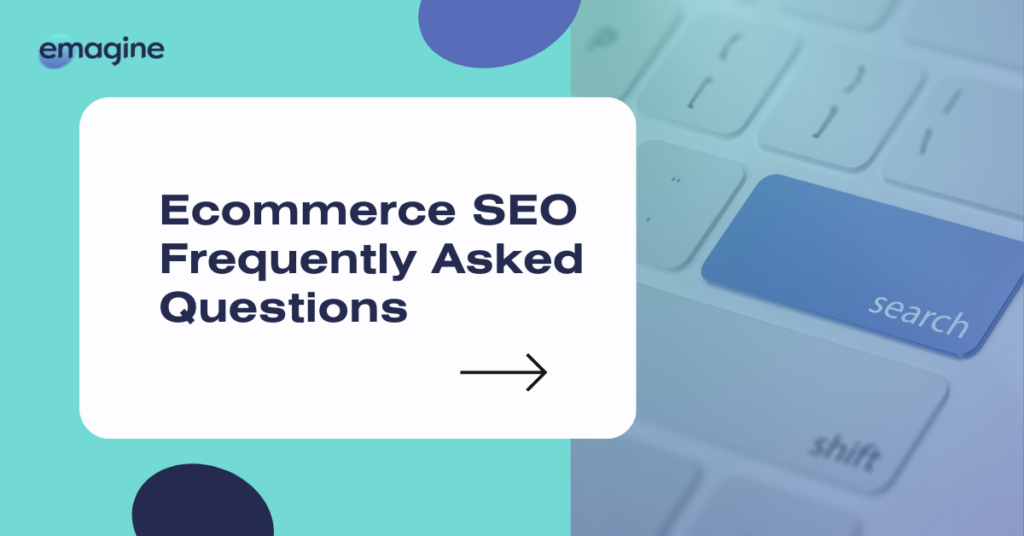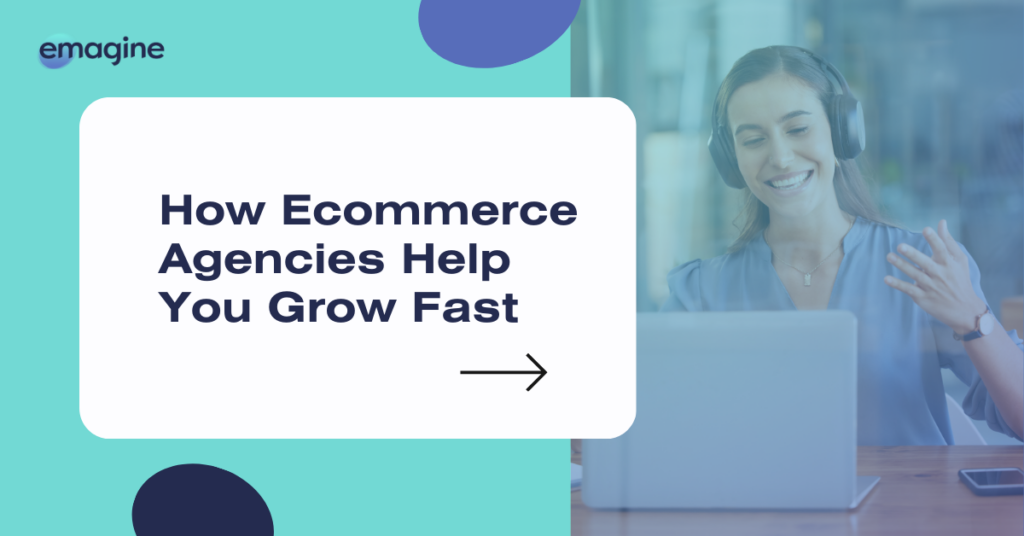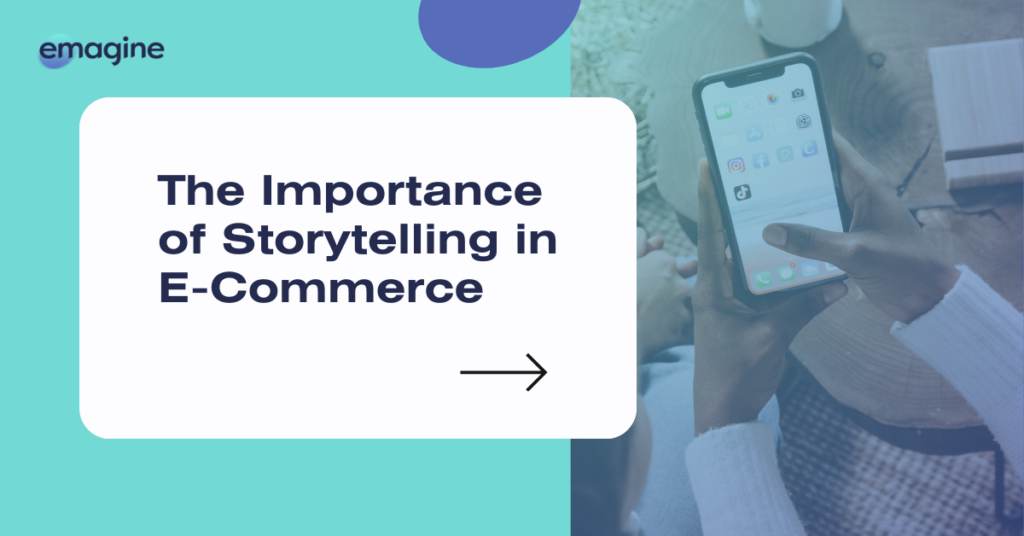In the digital marketplace, being visible is key to success. Ecommerce Search Engine Optimization (SEO) is the strategic art of boosting your online store’s presence to the top of search engine results, making sure that when your potential customers are searching, they find you first.
Below, we’ve got answers to 6 common questions we often get about SEO and how it’s a crucial catalyst for the growth of ecommerce businesses.
What exactly is the role of SEO in ecommerce growth?
SEO plays a crucial role in boosting ecommerce growth by making your online store more discoverable on search engines like Bing and Google.
SEO involves the optimization of various aspects of your ecommerce website — from visible content and metadata to site structure and technical performance — aligning them with search engine preferences.
This process increases the chances of your store appearing higher in relevant online searches, as most users rarely go beyond the first page of a search engine’s results.
With increased visibility, SEO not only attracts more traffic but also targets users who are ready to make a purchase, resulting in higher conversion rates and revenue growth.
How to get started with SEO to harness the full potential of your ecommerce site?
When it comes to doing effective SEO for your ecommerce website, you need a strategy that covers all the bases and keeps your audience engaged. Here are some tactics you can start with quickly and on your own:
- Optimize your products and collections’ titles and descriptions to ensure that they include the keywords used by your customers when searching online.
- Implement keyword-focused file names for product images and alt texts to enhance overall SEO and your visibility in image search engines.
- Craft informative blog posts to position your website as a valuable resource, deepen customer engagement, and establish leadership within your niche.
- Build a strong portfolio of reputable backlinks (links from other reputable websites that lead back to your site) to not only bolster your site’s credibility but also amplify your visibility.
- Regularly add and update your content to signal to search engines that your website is a thriving hub of current and relevant information and offerings.
The above tactics are essential for enhancing your ecommerce website’s searchability. However, they only scratch the surface of SEO’s capabilities, especially in the technical realm.
Technical SEO, including optimizing website speed, mobile-friendliness, and structured data, is equally important for online success.
While leveraging ecommerce platforms and fundamental SEO practices can be enough for some businesses — especially those in less competitive industries, ambitious entities understand that advanced strategies are necessary for true online prominence.
Engaging with SEO experts or agencies is a strategic move for businesses determined to harness the full power of SEO.
Don’t miss out on the digital revolution!
Get insider tips and strategies on ecommerce, AI, and digital marketing – delivered weekly to your inbox.
Is investing in SEO crucial for your business?
Investing in SEO is not only a smart choice for your ecommerce business, it’s essential. It’s a strategic move that positions your brand right where your customers are already searching.
By increasing your visibility in search engine results, your business secures a spot in the shopper’s journey to purchase, ultimately expanding your market share. SEO also gives you a competitive edge by outranking your competitors and capturing valuable traffic that could have gone their way.
But perhaps the most important aspect of SEO is its long-term value. Unlike pay-per-click advertising, a well-executed SEO strategy can keep bringing free traffic to your website and fuel sustainable growth for your business without the need for constant investment.
How does ecommerce SEO differ from traditional SEO?
Ecommerce SEO and traditional SEO are quite similar in terms of techniques and best practices. However, their goals and applications differ significantly.
The main objective of ecommerce SEO is to increase visibility for your products in search engine results, ultimately driving direct sales. On the other hand, traditional SEO focuses on boosting the visibility of your website’s content to drive traffic and engage readers.
For ecommerce businesses, SEO is all about optimizing product pages, fine-tuning collection pages, improving user experience, and ensuring smooth navigation and checkout to increase sales transaction frequency.
It’s a nuanced approach that’s essential for online stores, as it prioritizes the customer’s journey to purchase and aligns with their intent to buy.
How much does SEO cost?
The cost of implementing SEO can vary depending on the size of your website and the goals you have in mind. But here’s the thing: many aspects of SEO can be done for free.
Tasks like keyword research, optimizing your web pages, and creating content don’t have to cost you a dime, except for the time you put in.
However, if you decide to hire an SEO professional or agency, the costs will depend on their expertise, the size of your website, and the specific services you need.
Typically, businesses set aside a budget of $1,000 to $4,500 per month for comprehensive outsourced SEO projects.
Can Ecommerce platforms like Shopify enhance your SEO efforts automatically?
Ecommerce platforms like Shopify provide foundational SEO features to help you optimize your content and enhance your online visibility right out of the box. This includes optimization fields for product titles, descriptions, images’ alt texts, URLs, etc.
They also allow you to add a blog to your store which can help it rank for relevant keywords that don’t necessarily describe your products exactly, but relate to them.
Moreover, many premium ecommerce themes like Shopify themes are meticulously coded with SEO in mind, ensuring they cover the latest technical SEO best practices — which is not always guaranteed out of the box with some ecommerce website development experts or agencies.
However, while these SEO features and benefits are valuable assets, they do not replace the strategic and continuous work that goes into successful SEO optimization.
Effective SEO involves a hands-on approach to keyword research, content development, regular updates, and performance analysis, ensuring that your website not only remains up-to-date with the latest search engine algorithms but also delivers content that resonates with your target audience.
This meticulous attention to detail goes well beyond what any preset or automated system can accomplish and requires a human touch to capture the nuances of your brand and product offerings.
Got any other questions in mind?
If you’re unsure about effective SEO strategies for your ecommerce journey or need clarity on ecommerce website development and digital marketing complexities, our expert team is here to help.
Let’s connect and benefit from a complimentary consultation to address your questions and gain a comprehensive understanding of the ever-evolving digital marketplace.







